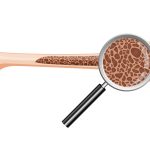Small but mighty; for a healthier gut, let’s get to grips with probiotics
Welcome to your gut. It’s a bustling little village, with lots of things going on at all times. This hub depends a lot on good bacteria to keep things happening, healthy, and functional.
Quick Read:
- Probiotics can help with gut health, but you should also work on eating better overall.
- Also, quality sleep and regular exercise are important for good health.
- Consider adding fermented foods like kefir into your diet. Look for foods that that are rich in a diverse array of probiotics.
How your gut works
First – what is your gut? Think of a small town with a diverse mix of residents. This town is filled with trillions of tiny organisms, mostly bacteria, that play important roles in keeping things running smoothly. Some of these bacteria are “good guys” who help with digestion, support your immune system, and keep things balanced, while others are “bad guys” who can cause problems when they get out of control. When everything’s in harmony, your gut (and you) feel great.
If the inside is not right, the outside will suffer. – Ugandan Proverb
Probiotics: working from the inside out
According to researchers at Stanford University, a diet that has plenty of fermented foods “enhances the diversity of gut microbes and decreases molecular signs of inflammation.”
In simple terms, this means that eating foods like yoghurt, sauerkraut, kimchi, and other fermented foods can help increase the range and assortment of healthy bacteria in your gut. Which, in turn, may also reduce certain markers in the body that signal inflammation, potentially leading to better overall health.
When you take probiotics, you add specific strains of “good” bacteria to your digestive system. These strains won’t stick around permanently, but they will pass through your digestive system and give a temporary boost of helpful bacteria, which has positive effects on your gut health.
Think of probiotics as good soldiers; living bacteria that you can find in certain foods and supplements.
What else can probiotics do?
- Probiotics help your body fight off germs by boosting your immune system, making you less likely to get sick.
- The bacteria in your gut can influence your mood! Some probiotics can help reduce feelings of stress, anxiety, and even depression.
- Probiotics make it easier to get the most out of the food you eat, so you can absorb important vitamins and minerals.
- If you suffer from bloating, gas, or IBS, probiotics can help calm your digestive system and make things run more smoothly.
- Probiotics aren’t just good for your gut. They are also in the mix when fighting skin issues like acne and eczema by reducing inflammation.
- Some probiotics combat bad cholesterol and may even keep your blood pressure in check, which is great for your heart.
- Probiotics can support a healthy weight by keeping your gut balanced, which affects how your body digests food and uses fat.

Help at hand
Probiotics can help improve your gut health, but please always use with caution.
- More isn’t always better. Taking too many probiotics may cause side-effects like bloating or gas. Stick to the recommended dose.
- Taking a probiotic doesn’t mean you neglect your diet. Like most supplements, a probiotic will work best with the right diet. Choose fibre-rich foods like fruits, vegetables, and wholegrains. This helps feed the good bacteria in your gut.
- If you’re on chronic medication or have a weakened immune system, please ask your doctor for advice before taking a probiotic.
- Some probiotics need to be kept in the fridge to stay “alive”, while others can be stored at room temperature. Always follow the storage instructions on the label.
- Not all probiotics are the same. Choose a probiotic that’s right for your needs (e.g., gut health, immunity) and make sure it’s from a trusted brand.
- If you’re new to probiotics, start with a small dose and gradually increase it. This gives your body time to adjust and prevents digestive discomfort.
Images: Unsplash and Freepik





















